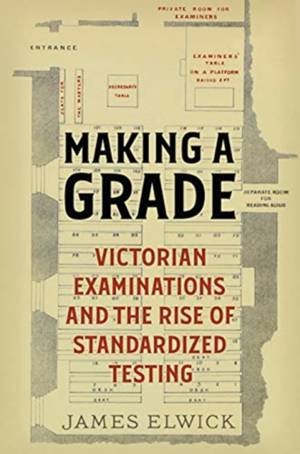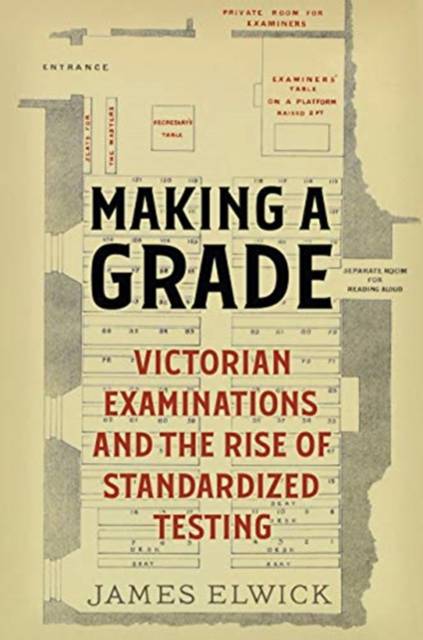
- Afhalen na 1 uur in een winkel met voorraad
- Gratis thuislevering in België
- Ruim aanbod met 7 miljoen producten
- Afhalen na 1 uur in een winkel met voorraad
- Gratis thuislevering in België
- Ruim aanbod met 7 miljoen producten
Making a Grade
Victorian Examinations and the Rise of Standardized Testing
James ElwickOmschrijving
Starting in the 1850s achievement tests became standardized in the British Isles, and were administered on an industrial scale. By the end of the century more than two million people had written mass exams, particularly in science, technology, and mathematics. Some candidates responded to this standardization by cramming or cheating; others embraced the hope that such tests rewarded not only knowledge but also merit.
Written with humour, Making a Grade looks at how standardized testing practices quietly appeared, and then spread worldwide. This book situates mass exams, marks, and credentials in an emerging paper-based meritocracy, arguing that such exams often first appeared as "cameras" to neutrally record achievement, and then became "engines" to change education as people tailored their behaviour to fit these tests. Taking the perspectives of both examiners and examinees, Making a Grade claims that our own culture's desire for accountability through objective testing has a long history.
Specificaties
Betrokkenen
- Auteur(s):
- Uitgeverij:
Inhoud
- Aantal bladzijden:
- 304
- Taal:
- Engels
Eigenschappen
- Productcode (EAN):
- 9781487508937
- Verschijningsdatum:
- 18/03/2021
- Uitvoering:
- Hardcover
- Formaat:
- Genaaid
- Afmetingen:
- 231 mm x 155 mm
- Gewicht:
- 566 g

Alleen bij Standaard Boekhandel
Beoordelingen
We publiceren alleen reviews die voldoen aan de voorwaarden voor reviews. Bekijk onze voorwaarden voor reviews.












